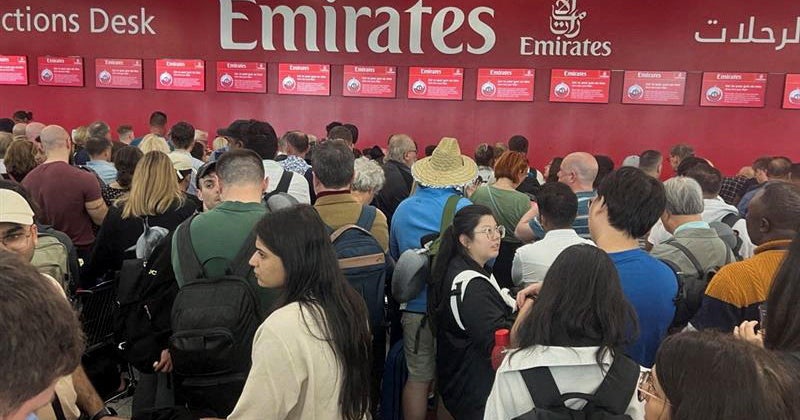North Korea skirted U.N. sanctions and earned $2 billion using cyber attacks, new U.N. report says
United Nations — A still-unpublished U.N. report claims that North Korea is skirting U.N. sanctions to the tune of billions of dollars. The news comes on the heels of North Korea defiantly test-firing more projectiles on Tuesday — the fourth test for the country in less than two weeks.
The U.N. report, written by an expert panel, says that the North's "cyber actors... raise money for its WMD [weapons of mass destruction] programs with total proceeds to date estimated at "up to two billion U.S. dollars."
Notably, the government of Kim Jong Un is using new techniques to earn hard currency for its illicit activities. Many of the entities, operating as subterfuge, "continued to operate overseas, including under diplomatic cover, attempting to transfer conventional weapons and expertise and to procure equipment and technology" to North Korea.
The 33-page report, with 109 pages of annexes, details chapter and verse North Korea's sanctions-evading techniques. The report said the panel continues to investigate 35 instances where North Korea has attacked financial institutions and cryptocurrency exchanges.
Cyber attacks and cryptocurrency exchanges used
Pyongyang "used cyberspace to launch increasingly sophisticated attacks to steal funds from financial institutions and cryptocurrency exchanges to generate income," the U.N. report, obtained by CBS News, states.
The expert panel that drafted the report said it investigated North Korea's "widespread and increasingly sophisticated use of cyber means to illegally force the transfer of funds from financial institutions and cryptocurrency exchanges, launder stolen proceeds and generate income in evasion of financial sanctions."
The reason for the attacks, the experts explain, is because "large-scale attacks against cryptocurrency exchanges allow the DPRK [the formal name for North Korea] to generate income in ways that are harder to trace and subject to less government oversight and regulation than the traditional banking sector."
The U.N.'s expert panel may have a new chairman but the conclusions in this mid-term report — covering February to July of 2019 — echo findings from earlier reports that North Korea "continued unabated its ship-to-ship transfers in violation of the [U.N.] resolutions."
And the panel identified new evasion techniques, "including the use of Class B AIS by feeder vessels and multiple transfers using smaller vessels." An "AIS" is a maritime navigation safety communications system standardized by the International Telecommunication Union (ITU), the U.N's specialized agency that oversees information and communication technologies. AIS systems help track both docked and active vessels, helping fleets in everything from tracking cargo to avoiding collisions.
Cap on petroleum products exceeded
The report indicates that more than two dozen nations — including the U.S. — contributed imagery, data and assessments that the "annual cap for 2019 as set by the Security Council of 500,000 barrels of the aggregate amount of refined petroleum transferred to the DPRK had been exceeded in the first four months of 2019." Earlier reports have concluded the same.
The experts also reported that there were objections by Russia and China. Russia felt that it was "premature" for the U.N. sanctions committee to make a "conclusive determination" and to end refined petroleum imports, while China wanted more evidence.
The U.N. report also clarified that the sanctions "are not intended to have adverse humanitarian consequences for civilian population," or to hinder the relief and aid work of international organizations operating in North Korea.
Who the U.N. is blaming
The expert report said that many nations failed to implement financial sanctions in addition to blaming North Korea. That failure, combined with North Korea's deceptive practices "enabled the country to continue to access the international financial system."
North Korea's "financial institutions, including designated banks, maintain more than 30 overseas representatives controlling bank accounts and facilitating transactions, including for illicit transfers of coal and petroleum," the report says.
What's next
Despite tensions, South Korea and the U.S. are preparing to hold their annual joint military exercises amid warnings from North Korea that the drills could derail fragile nuclear diplomacy.
And the North's recent weapons tests — which included a short-range ballistic missile test on July 25 — likely dampened the optimism that followed the meeting between Donald Trump and Kim on June 30 at the demilitarized zone between the Koreas.
The U.N. Security Council held a closed-door meeting last week at the request of Britain, France and Germany, to discuss Pyongyang's recent missile launches, and the three renewed the call to enforce U.N. sanctions.
Japan's Ambassador, Koro Bessho, told CBS News on Monday, "It is clear that North Korea continues to evade sanctions… the North has not made any meaningful progress towards CVID [complete verifiable irreversible denuclearization] of weapons of mass destruction."
"So the international community must work together to implement Security Council resolutions in full," Bessho said.
Some North Korea experts believe that the Trump administration may be losing interest in a deal with North Korea.
Robert Carlin, a visiting scholar at Stanford University and CBS News' North Korea consultant and Siegfried Hecker a former director of the Los Alamos National Laboratory and a senior fellow emeritus at Stanford University penned a piece for the Berggruen Institute that highlights this potential shift.
"It is going to take both sides to recognize the importance of the moment," they wrote.
Scott A. Snyder, Senior Fellow for Korea Studies and Director of the Program on U.S.-Korea Policy, told CBS News that the reason that North Korea skirts the sanctions is that they need the money, but that they also see sanctions as "unjustified, therefore illegitimate and not binding."




